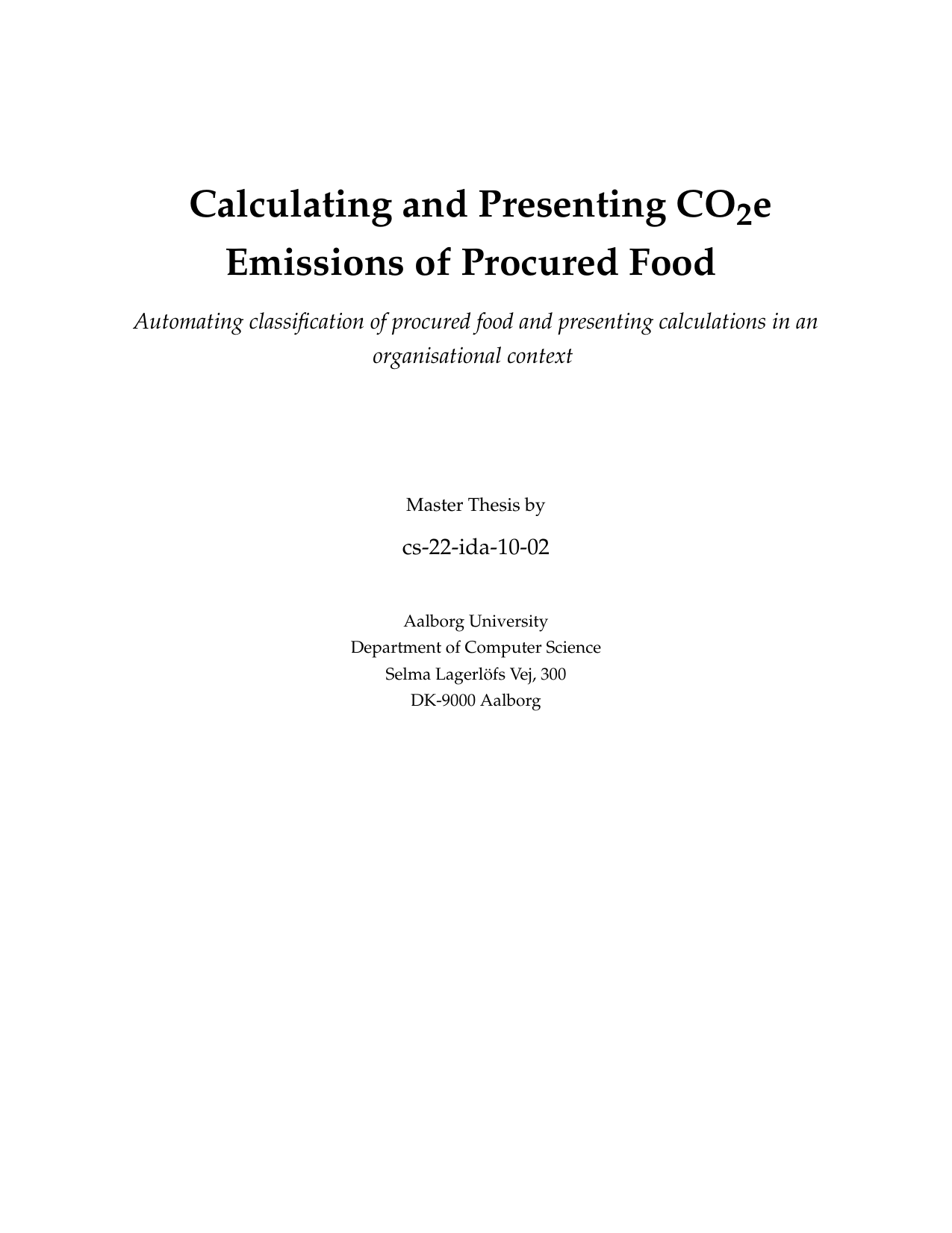
Calculating and Presenting CO2e Emissions of Procured Food: Automating classification of procured food and presenting calculations in an organisational context
Translated title
Calculating and Presenting CO2e Emissions of Procured Food
Term
4. Term
Publication year
2022
Submitted on
2022-06-09
Pages
249
Abstract
Background: This project explores the possibility of a digital solution for tracking CO2e emissions of procured food products at Madservice Aalborg. It is expected that the tracking will become mandatory, but uncertainties regarding how the task should be carried out persists. Methods: Through interviews, workshop, prototyping, evaluation and thematic analysis, an understanding of the organisational context as well as the requirements for a digital solution is gained. Furthermore, machine learning models are applied to automate the task of classifying procured food items from invoices to equivalent food items in The Big Climate Database. Conclusion: The application of machine learning models can ensure consistency and support feasibility of how calculations can be made, but the precision of calculations will depend on many factors. To best support sustainability changes to procurement practises of food, a digital solution should present information in ways that take users, their context and the purpose of presentation into account. The project provides descriptive examples of incorporating important considerations for the specific context into visual design.
Keywords
Documents
